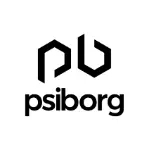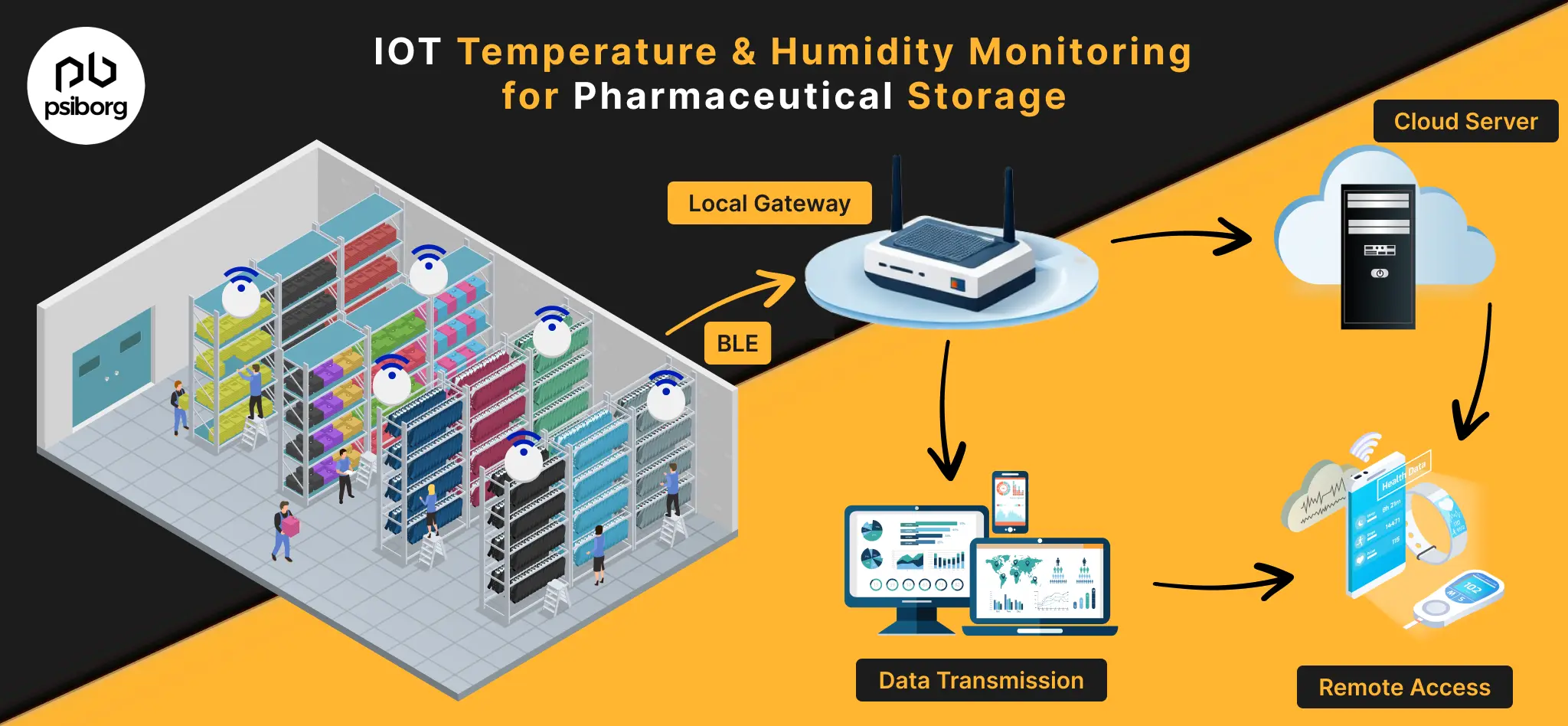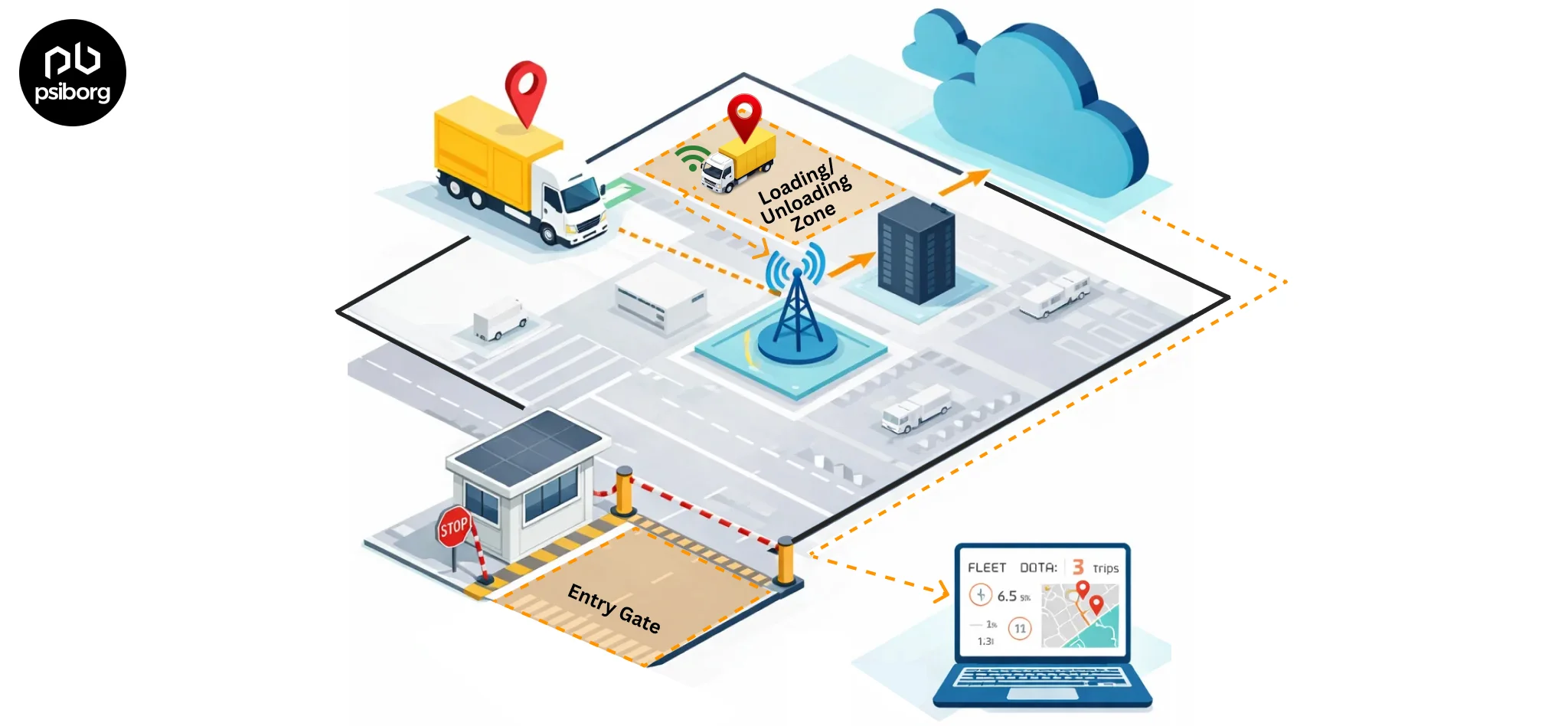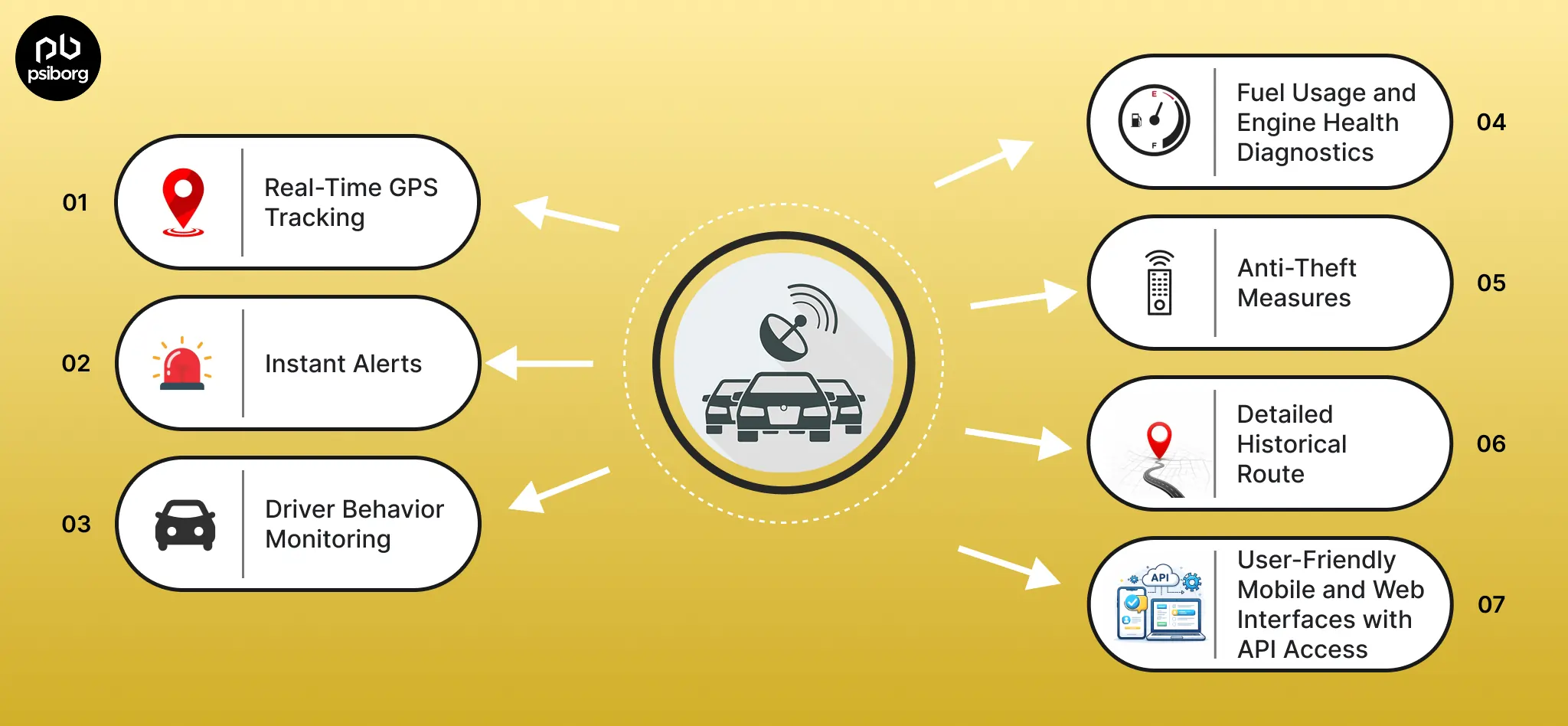The Internet is vast, like the galaxy, and bounding it is next to impossible. Also, the Internet of Things has made the use of the Internet even more boundless. Technology has reached the point where everything is connected via the Internet. The evolution of technology from large supercomputers to chip-sized devices has made it possible to transform normal products such as switches, shoes, pens, etc. into smart devices. Moreover, we can collect data, analyze it, make predictions according to the data collected from these devices, and visualize this data, we need to develop an IoT dashboard.
So, the IoT Dashboard is one of the critical elements required to establish the connection between smart devices and living beings. The primary reason to develop an IoT dashboard is to analyze the data collected from smart devices and organize it in a human-readable form. The IoT dashboard allows the user to operate, organize, analyze, and manage information in a more straightforward way from anywhere in the world.
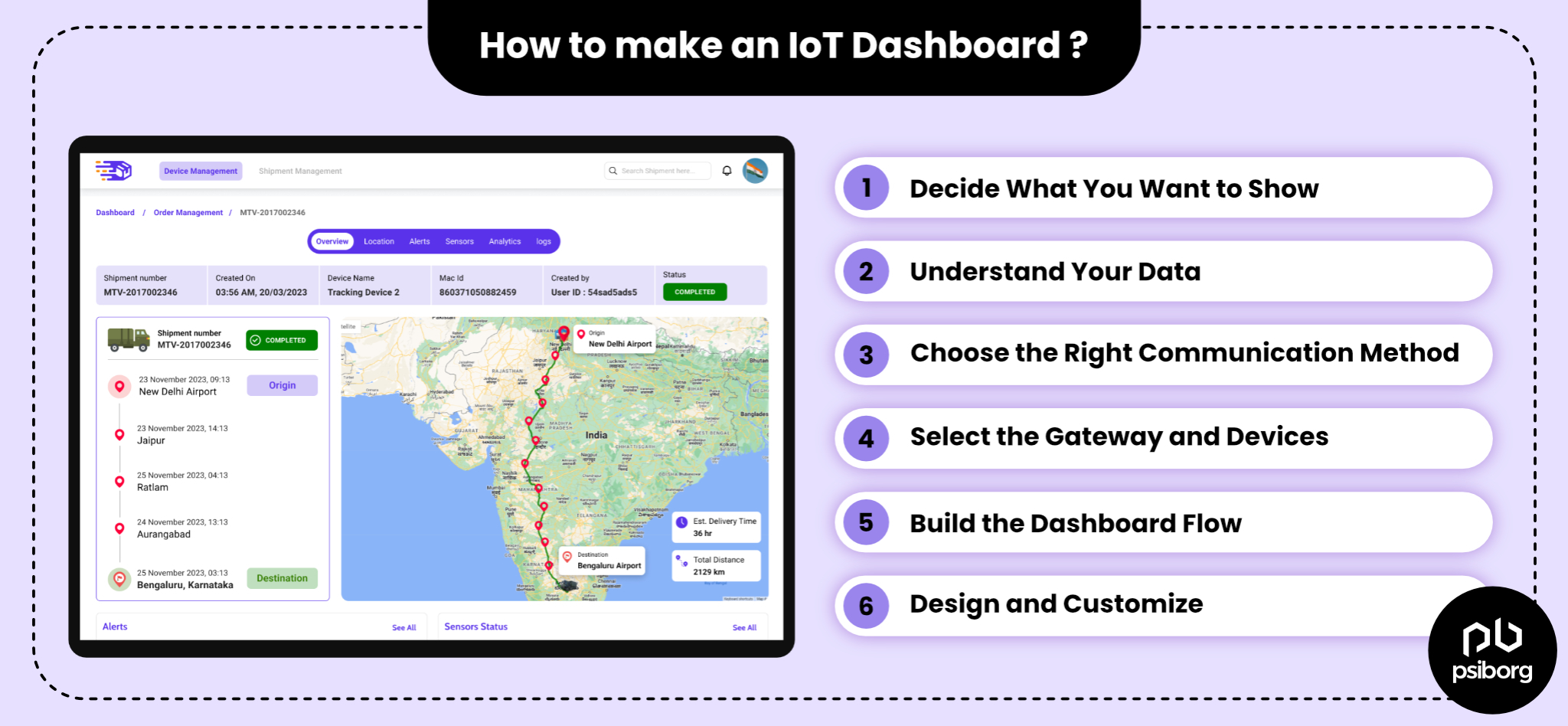
What Is an IoT Dashboard and Why Is It Important?
How convenient it would be if we could see everything that’s going on with our machines, devices or systems from a single platform and in real-time. That’s what an IoT dashboard helps with. This visual tool collects data from all the connected devices and displays it in a way that’s easy to understand.
Regardless of whether you need to monitor a smart home or a large-scale factory, once you develop an IoT dashboard, it acts like a digital control panel where you can see all live updates from energy use to machine status. No need to check each device separately because you get simplified charts, graphs and alerts for a comprehensive view.
Now, why is it important?
To begin with, if there’s no proper dashboard, all that valuable data from your IoT devices will make no sense or go unnoticed. With the help of a well-designed IoT dashboard development project, businesses can act quickly, make smarter decisions, and stop any problems from happening.
While IoT mobile Apps are good for notifications , IoT dashboards are essential for data analysis and seeing past trends for actionable insights.
Let’s say you have an industrial IoT dashboard. It will send you notifications if a machine is overheating and that will eventually save you breakdown costs. By showing patterns, it will further help you put machines to better use, cut down energy usage and even with predicting the maintenance needs in advance.
All in all, you don’t build an IoT dashboard just for data collection but also gaining insights that help you work better than ever
What Are The Requirements to Develop An IoT Dashboard?
Before jumping in to build an IoT dashboard, it is essential to understand the requirements of a successful IoT dashboard. Six elements are required to build a successful IoT dashboard: data visualization, data organization, data storage, real-time data collection, data analysis, and data security.
Data Visualization
According to science, the human brain visualizes things more quickly than reading. A good IoT dashboard should be developed to effectively help visualize every piece of information collected through a device or sensor. The visualized data can be organized more precisely and is easy to understand. Commonly used data visualization tools are line charts, pie charts, bar charts, stats, histograms, gauges, and heat maps.
Data Organisation
The following primary functionality required in a good IoT dashboard is the ability to organize the visualized data in such a way that it is easy to understand. The data organization should be done so that critical, relevant, and unimportant data can be separated accordingly.
Data Storage
An IoT device can generate unlimited amounts of data. Therefore, an IoT dashboard should be capable of storing the data collected.
Real-Time Data Collection
The primary reason to develop an IoT dashboard for IoT devices is to collect information in real-time. Hence, the collection of data in real-time is another vital requirement of a successful IoT dashboard.
Data Analysis
Data collected by a smart device is indeed essential, but the bulk data cannot be seen as valuable information. Therefore, an IoT dashboard should be capable of analyzing the data and extracting critical information that can be useful in growth and research.
Data Security
Data security is one of the biggest concerns faced in the era of technology. To successfully develop an IoT dashboard assures the security of your data completely without a glitch.
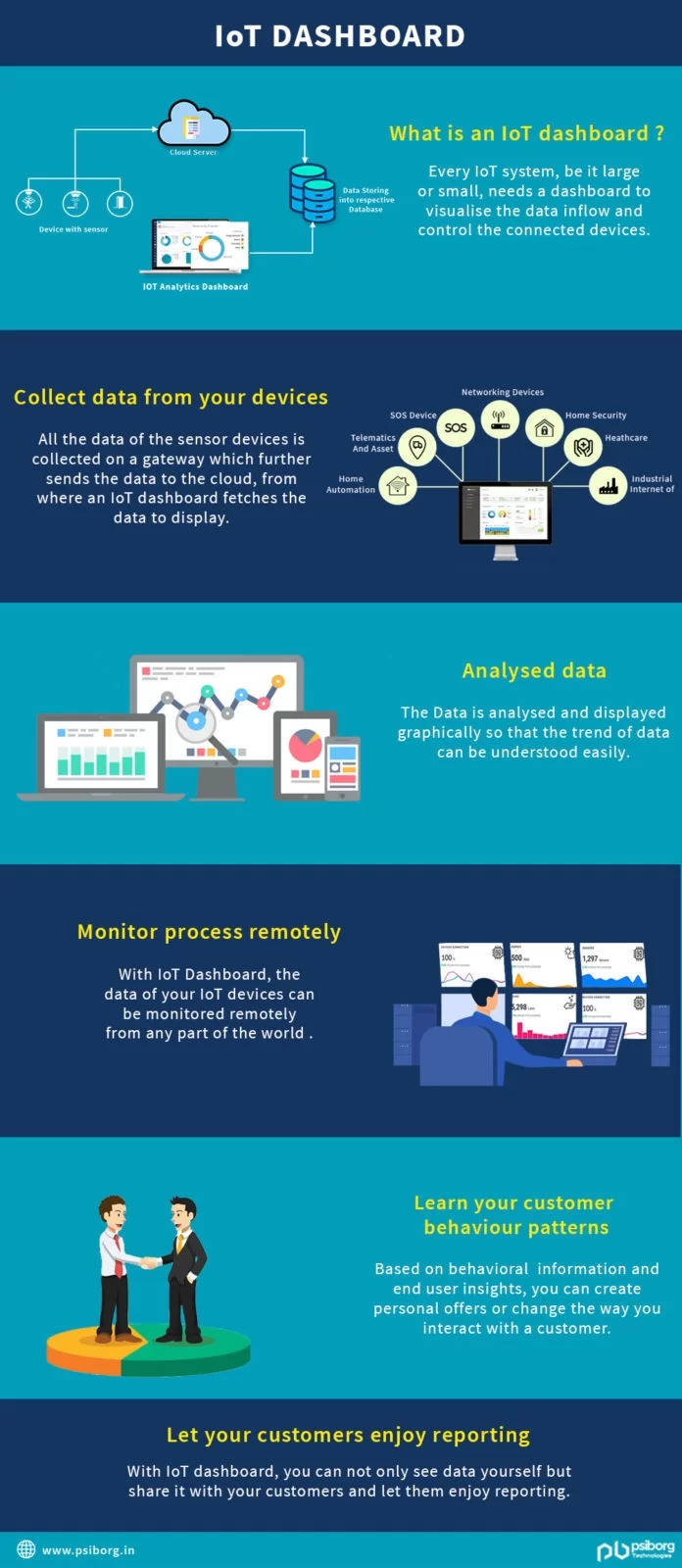
Choosing the Right Tech Stack for IoT Dashboard Development
The technology you choose to develop an IoT dashboard will play a big role in how well it works for you. Here’s what to consider:
User Interface Tools:
Because the main goal is to make sure users can view and understand data without getting confused, you should choose tools with which you can design a clean and easy-to-use dashboard.
Data Handling System:
It actually works behind the scenes. The system receives data from your devices and makes it understandable. So, it has to be fast, protected and reliable.
Data Storage:
All the information collected by your devices needs a storage place. You have to make sure the storage system can store such large amounts of data and also keep it safe.
Communication System:
Devices need a dedicated way to be able to send data to your dashboard. Pick a method that’s fast and works equally well with multiple devices connected.
Cloud or Hosting Platform:
Use a platform where your system can grow, many users can be supported and everything can run smoothly. This is extremely important when it comes to building an industrial IoT dashboard.
The right tools help you build an IoT dashboard that aligns with the performance and is future-proofed
Step-by-Step Process to Develop an IoT Dashboard
By following a few clear steps, you can develop an IoT dashboard whether for basic monitoring or a complex industrial IoT dashboard. Here’s how you can launch a simple yet powerful IoT dashboard:
1. Decide What You Want to Show
We always start by listing down what information we want on the dashboard. Device status, location, alerts, temperature, charts or anything else. That will be the design and layout.
2. Understand Your Data
It’s important to know the source of data, how frequently it’ll be sent and whether it has to be processed before displaying. Good IoT dashboard development always aims at meaningful and real-time insights.
3. Choose the Right Communication Method
As per what you need (speed, energy usage, reliability etc), pick a mode through which your devices will send data. You could use MQTT, HTTP or CoAP.
4. Select the Gateway and Devices
Since your devices are connected to the dashboard via gateways, you should ideally choose a smart gateway for faster processing, especially if it’s an industrial IoT dashboard. Also, double-check that the devices (sensors or trackers) can accurately send data.
5. Build the Dashboard Flow
You basically need to create a loop. The data will go from device to dashboard, it will trigger alerts and then actions will be taken. This will keep your setup responsive and efficient.
6. Design and Customize
Now, finally, you add graphs, numbers and other visuals to build the IoT dashboard. Go ahead and adjust the design in a way that it fits all screens just fine.
Conclusion
An IoT dashboard is successful if it can turn complex information into useful insights. Whether it’s a basic setup or industrial, the development steps can’t be compromised. What to display, the right devices, flow of data and then tech stack, everything impacts the final result of an IoT dashboard development process.
With more industries adopting IoT, there’s a huge demand to develop an IoT dashboard that’s efficient as well as user-friendly. Planning to build an IoT dashboard? Get in touch with PsiBorg!
FAQ
The IoT Dashboard is an essential part of an IoT ecosystem. To build IoT Dashboard, 3 components are a must-have. These 3 components are a visualization tool, a data processing engine, and multi-tenancy.
IoT technology is diverse and surrounded by different platforms, protocols, and programming languages. Some widely used programming languages are C and C++ for gateways and IoT dashboards and Java and Python for the cloud. However, we advise you to choose a language that has extensive support, frameworks, and libraries for specific technologies. The most important things to look out for are reliability and performance.
There are several benefits to an IoT dashboard; but an IoT dashboard has some challenges as well, like data generalization, tool limitations, human factors, and some design issues.
All dashboards have some anomalies, as the data is never self-explanatory, so the focus points of the people reading the data can vary. These challenges may seem a little obstructive, but you can overcome them by choosing a reliable IoT partner.
Only with a real-time IoT dashboard can users quickly monitor the connected devices. In fact, they can take prompt actions if they find anything going wrong. The dashboard gives live updates, alerts and patterns through which users can manage operations, especially in environments like manufacturing or logistics where time matters a lot.
You begin by identifying exactly what data you want to display (like temperature, live location, etc.). The process is followed by connecting devices, choosing a mode of communication, data processing and designing a user interface. For easy scalability and real-time access, hosting the dashboard on a cloud platform would be brilliant.
